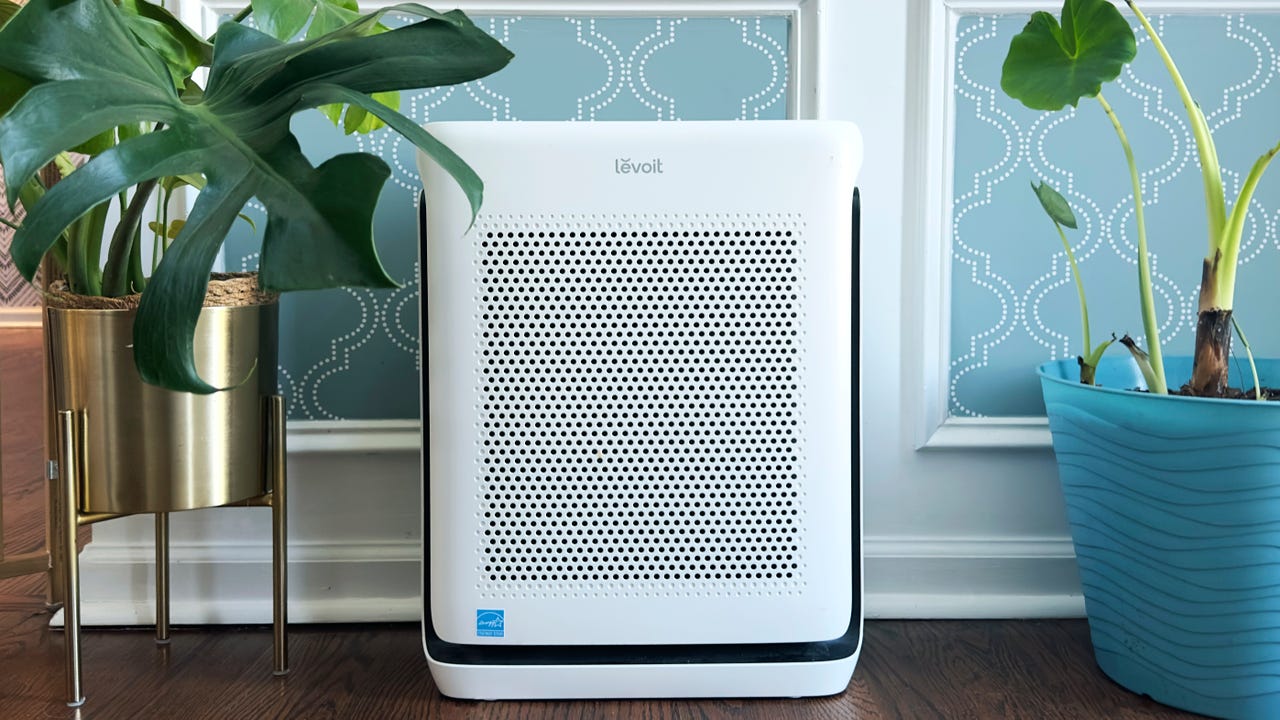'ZDNET Recommends': What exactly does it mean?
ZDNET's recommendations are based on many hours of testing, research, and comparison shopping. We gather data from the best available sources, including vendor and retailer listings as well as other relevant and independent reviews sites. And we pore over customer reviews to find out what matters to real people who already own and use the products and services we’re assessing.
When you click through from our site to a retailer and buy a product or service, we may earn affiliate commissions. This helps support our work, but does not affect what we cover or how, and it does not affect the price you pay. Neither ZDNET nor the author are compensated for these independent reviews. Indeed, we follow strict guidelines that ensure our editorial content is never influenced by advertisers.
ZDNET's editorial team writes on behalf of you, our reader. Our goal is to deliver the most accurate information and the most knowledgeable advice possible in order to help you make smarter buying decisions on tech gear and a wide array of products and services. Our editors thoroughly review and fact-check every article to ensure that our content meets the highest standards. If we have made an error or published misleading information, we will correct or clarify the article. If you see inaccuracies in our content, please report the mistake via this form.
How to choose an air purifier: 5 things to look for and 1 to avoid

Air purifiers have become essential in my home, but it's more important than ever to choose the right one.
If you're shopping for air purifiers for your home, there are several factors to consider when choosing and setting up an air purifier in a room, whether it's to reduce smoke pollution, lower the risk of viral transmission, or improve seasonal allergies.
Also: The best smart air purifiers to keep your home's air clean
It's essential to consider the type of filter, cost, user experience, size of the room or space where the air purifier will go, the price of the unit, and the ease of maintenance -- as well as the follow-up costs for replacement filters. Choosing the right features is paramount for a device that will process the air you'll breathe into your lungs, so we'll rank them in order of importance.
1. The type of filtration, including the stages
Many air purifiers tout fancy filtration systems to remove the most air particles. You only need to look for one with a true HEPA filter, which stands for High-Efficiency Particulate Air filter, as these capture 99.97% of particles that are 0.3 microns in diameter. Everything else is frosting.
Avoid: I'd caution you against buying air purifiers that use UV or ionization as these produce ozone, a lung irritant proven to decrease lung function and inflame lung tissue.
Stages are popular in air purifying systems. The stages are the layers of filtration the air goes through in the air purifier during cleaning. These devices typically have at least a washable fabric filter, then the replaceable filter, which is the one that should always be a HEPA filter. This would be a two-stage system. Some systems have three stages, where the third layer is an activated carbon filter that removes odors and some gases from the air.
2. The size of the room you're purifying
To find the right air purifier for your home, measure the size of the room where it will be installed.
Air purifiers are optimized to clean specific-sized rooms, as their power is measured by how often they can exchange all the air in the room, called Air Changes per Hour (ACH). The higher the ACH, the more powerful the air purifier.
Also: The best extreme weather tech of 2023
An ACH of 4 means it can exchange all the air in the room four times in one hour so that it can clean the air in the room in only 15 minutes. The CDC published guidelines recommending five air changes per hour to reduce airborne virus transmission.
For example, the Levoit Vital 200S air purifier can clean the air in a 380-square-foot room (think 20ft by 19ft) in just 12 minutes. That's an ACH of 5. It can still be used in larger rooms, but its ACH rate will decrease for larger rooms.
3. Cost, including maintenance
Cost is another critical factor when choosing an air purifier. You can find the aforementioned Levoit Vital 200S, priced at $190, as easily as you can find a $750 one from Rabbit Air A3, so choosing wisely is important.
After you factor in the room size for your air purifier and the initial budget, you need to consider maintenance costs and factor that into your long-term budget. Air purifiers need filter replacements every few months -- whether every three, six, or 12 months will depend on the filter and the use.
Also: I'm letting AI mop my floors now, and I'm not going back
Some air cleaners have a lower upfront cost but require frequent and more expensive filter replacements, so check how often filters need to be replaced and how much they cost before settling on a model. You can also check the product reviews to see if there are often issues with delays and stock.
4. Noise level, depending on where you put it
I don't mind the hum of an air purifier by my bed -- it serves as a source of white noise to lull me to sleep with clean, fresh air. But I don't always want to hear the fan when I'm working and need to focus while my dog is in the office, triggering my allergies, so I know I need a quiet one in that room.
There are a lot of whisper-quiet air purifiers on the market, ranging from 24-30 decibels. For reference, the hum of a refrigerator is around 40 dB, and a vacuum cleaner ranges from about 60-70 dB.
Also: The Echo Show 8 makes my home so much smarter, and it's 30% off right now
Noise level is typically listed on the air purifier's specifications chart, so take a gander at it if you're sensitive to noise or looking for a quiet device.
5. Extra and smart features
I enjoy smart features in almost any home device. My smart air purifiers feature integrations with Alexa, so I can ask my Echo speakers to turn them on or off and control them as part of 'goodnight' routines, and I can easily control them from mobile apps on my phone.
Also: Smart home starter pack: 5 devices that will make your life easier
Other extra features include air quality indicators, schedules, timers, and filter change indicators. These features add convenience to the consumer, but they could add to the initial cost of the device, so consider which are worth the expense for you.
FAQ
Does an air purifier help with wildfire smoke?
Yes, air purifiers can help with wildfire smoke, but only when used correctly. Air purifiers provide filtration for enclosed spaces by removing fine particles in the air, including those in smoke.
Also: The smart air purifier that saved our holiday plans
These portable air cleaners can remove wildfire smoke from indoor air as long as the following conditions are met:
- The doors and windows remain closed
- The air purifier can exchange the air in the entire room
- The air cleaner uses a HEPA filter
- The air purifier is properly maintained (the filter is clean and doesn't need replacing)
If you're concerned about wildfire smoke and have sensitive population members at home, you can also use a high-quality air filter in your home's HVAC system.
How do air purifiers work?
An air purifier is a filtration system for the air in an enclosed space. It's an enclosure with a fan inside to pull the air from one side and push it out the other. As the air is pulled in, it's pushed through layers of filters to remove the fine particles from it and the clean air is released on the other side.
Is there a downside to air purifiers?
Aside from the monetary investment and the minor energy consumption, there isn't a real downside to an air purifier with a HEPA filter.
Some air purifiers use UV and ionization to neutralize air particles but produce ozone as a byproduct of their operation, which can cause lung irritation, coughing and even lead to permanent lung damage.
This is why it's best to choose air filtration systems with HEPA filters instead of UV filters, as these trap the fine particles in the air without producing gases.
